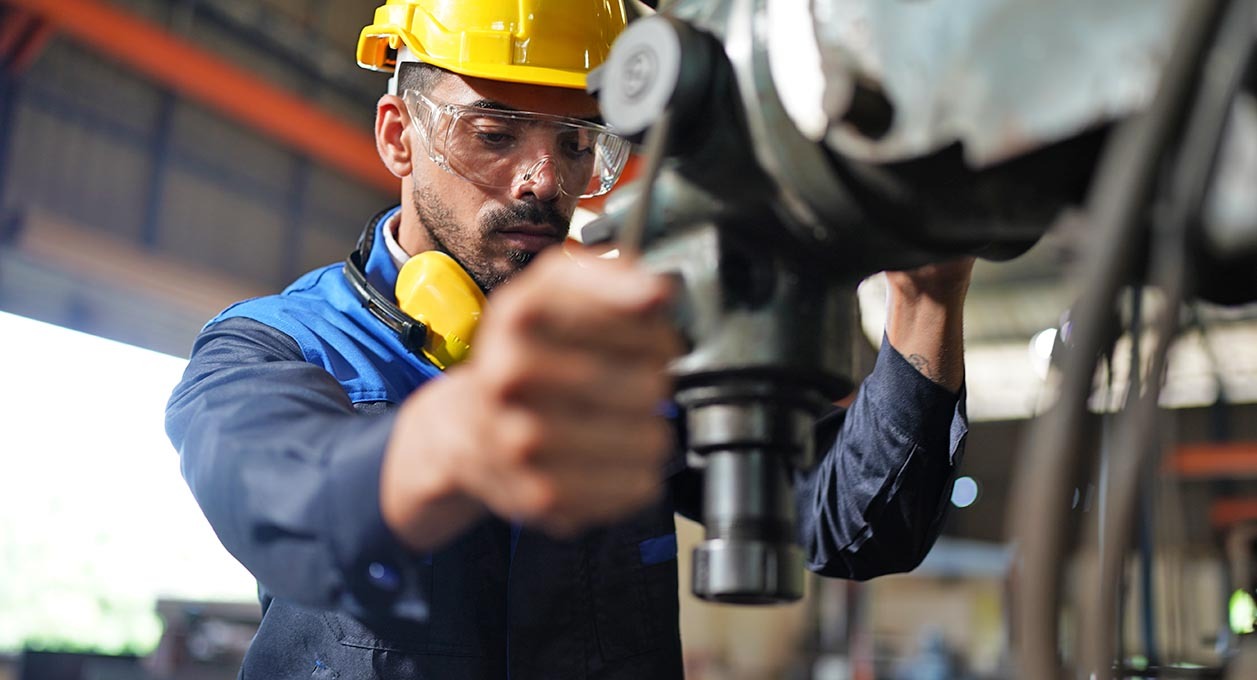Hydraulic machinery is a type of fluid power system that uses pressurised oil to transmit power, rather than cables or chains.
Hydraulic systems are frequently used in manufacturing, especially in processes involving heavy lifting or moving.
Hydraulic equipment can also be found in mining operations, construction sites, and other industrial settings where heavy equipment is used.
Whether you manage a small factory or a large industrial facility, it’s important to keep your hydraulic machinery working optimally at all times.
If your hydraulic machinery isn’t running correctly, it could put the safety of your employees and site visitors at risk.
Additionally, an overheated or leaky hydraulic system will use more energy than necessary and reduce the productive output of your facility.
Below are some useful tips for keeping your hydraulic machinery running smoothly at all times. Contact CJ Plant Maintenance today if you require hydraulic repairs or maintenance.
Test Your Equipment Before Use
Before you put your hydraulic machines to use, you should test their functionality to ensure that they operate as intended.
Test the pumps, valves, hoses, and cylinders of your system to determine whether they have sufficient pressure and flow.
If any parts of your system aren’t operating as they should, you should replace them before putting the system into production.
You should also test your hydraulic system under the conditions that it will be used.
For example, if your hydraulic system is used to lift heavy materials, you should test it while lifting the heaviest materials it will be used with.
Hydraulic systems can fail without warning if they’re put under too much pressure.
By testing your system ahead of time, you can find potential issues and fix them before they lead to a hydraulic failure.
Keep a Regular Maintenance Schedule
Hydraulic machinery should be inspected and maintained on a regular basis.
To keep your hydraulic system running smoothly, you should perform routine inspections, cleanings, and repairs on your machinery.
You should also test your system regularly and replace hydraulic oils as necessary.
Periodic maintenance isn’t just useful for preventing malfunctions; it also helps you to spot potential issues before they become serious problems.
For example, if there’s a leak in your hydraulic system, you may be able to locate and repair the leak before it becomes a major problem.
Additionally, regular maintenance can help you to save money on energy costs. A well-maintained hydraulic system will use less energy than an unclean, poorly maintained system.
Monitor Fluid Levels and Temperature
Hydraulic systems operate at very high temperatures, so it’s important to keep an eye on the temperature of your system’s fluids.
If your hydraulic fluids are too hot, they can damage the system and lead to malfunctions.
You can monitor fluid temperatures by installing sensors in your system or by keeping a journal of the temperatures of your fluids at various times of the day.
If you notice that any fluids are overheating, you should check their source of heat and try to remove it as soon as possible.
You should also keep an eye on the levels of hydraulic fluids in your system. You can use gauges to monitor the levels of oil or other hydraulic fluids in your system.
If the levels of any fluids drop too low, it could indicate that there is a problem with your system.
Adjust Your Valves and Filters
The filters and valves in your hydraulic system are essential components that help to clean and direct the flow of fluids.
If your valves or filters aren’t working correctly, they could cause contaminants to enter your system and lead to malfunctions.
If any of your valves are too tight or loose, they may cause unnecessary pressure on your system.
If any valves are clogged or have holes, they could leak hydraulic fluids. If any filters are clogged, they may prevent hydraulic fluids from flowing correctly.
Conclusion
Hydraulic machines are essential in industrial and manufacturing settings, where heavy equipment is used to lift heavy materials and transport them to new locations.
These machines are also used in mining and construction sites, where they are needed to lift heavy materials and transport them to new locations.
It is important to keep your hydraulic machines working optimally at all times. If your hydraulic machinery isn’t running correctly, it could put the safety of your employees and site visitors at risk.
Additionally, an overheated or leaky hydraulic system will use more energy than necessary and reduce the productive output of your facility.




